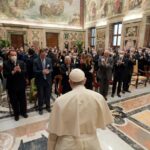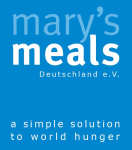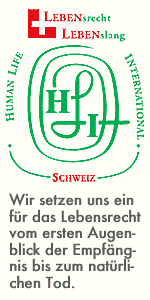Vatikan – Begegnung des intern. Konsortiums Kath. Medien
Address of His Holiness Pope Francis to participants in the meeting promoted by the international consortium of catholic media “Catholic Fact-Checking”
Clementine Hall, Friday, 28 January 2022
 Quelle
Quelle
An die Teilnehmer der Begegnung des internationalen Konsortiums Katholischer Medien
Dear friends, welcome!
I am meeting with you today to reflect together on the theme of communications, and specifically on the way that Christian communicators should deal with certain problematic issues related to the Covid-19 pandemic. I thank Mr Montagne for his introduction and I offer a cordial greeting to all of you.
In his Message for the 1972 World Communications Day, Saint Paul VI noted that, “people can nowadays readily acknowledge that many of their attitudes, judgements and approaches to various questions, as well as their allegiances and antagonisms, are heavily influenced and to a great degree even shaped by their exposure to ideas and suggestions coming from the mass media”. The Pope went on to observe that, “the outstanding service provided by communicators entails much more than observing and reporting what is immediately evident. The reporter relates the incident to the context in which it happens, investigates its causes, examines the surrounding circumstances and tries to assess the possible effects of what has happened”.
This, he said, calls for a rigorous method: “Communicators must observe facts carefully, check their accuracy, make a critical evaluation of the sources of their information, and finally, pass on their findings. The burden of responsibility is all the greater when, as often happens, the reporter is called upon not only to give the simple facts of a case but also to explain its implications by providing commentary and the elements needed for a fair assessment”. A year ago, I read an interesting study of how the content of a story changes due to the attention the writer gives to what he or she is transmitting. The study was done by Professor Simone Paganini of the University of Aachen. It was interesting how he studied this problem of a change of content in the transmission of something.
Pope Paul VI was speaking of communications and news reporting in general, yet his words are indeed timely if we think of the kinds of disinformation circulating nowadays on the web. You yourselves have set as a goal the unmasking of fake news and partial or misleading information about Covid-19 vaccines, and have begun to do so by networking different Catholic media and involving various experts. Your initiative was born as a Consortium that seeks to be together for the truth. Thank you, thank you for this.
First, together. Working together is essential, not least in the field of information. Networking, sharing skills, knowledge and contributions in order to provide suitable information is already an initial form of witness. At a time when we are feeling the effects of the pandemic and of divisions in society – and divisions in opinions – the fact that you are networking as Christian communicators is itself sending a message. It is a point of departure, a message.
We can hardly fail to see that these days, in addition to the pandemic, an “infodemic” is spreading: a distortion of reality based on fear, which in our global society leads to an explosion of commentary on falsified if not invented news. Contributing, often unwittingly, to this climate is the sheer volume of allegedly “scientific” information, comments and opinions, which ends up causing confusion for the reader or listener.
This points to the importance of networking and uniting forces with scientific research on diseases, which continues to advance and enables us to combat them more effectively. “Knowledge must be shared, expertise must be shared, science must be pooled” (Address to Members of the Biomedical University Foundation of the “Campus Biomedico”, University of Rome, 18 October 2021). It also applies to vaccines: “There is an urgent need to help countries that have fewer of them, but this must be done with far-sighted plans, not just motivated by the haste of wealthy nations to be safer. Remedies must be distributed with dignity, not as pitiful alms. To truly do good, we need to promote science and its integral implementation” (ibid.). Accordingly, to be properly informed, to be helped to understand situations based on scientific data and not fake news, is a human right. Correct information must be ensured above all to those who are less equipped, to the weakest and to those who are most vulnerable.
The second word, after “together”, is “for” – together for. “For” is a little word but it says much. It reminds us that, as Christians, we are against injustices and lies, but always for persons. Even if the purpose of your Consortium is to combat disinformation, to refute fake news and the manipulation of more impressionable minds, the fundamental distinction between information and people must never be overlooked. Fake news has to be refuted, but individual persons must always be respected, for they believe it often without full awareness or responsibility. A Christian communicator must be evangelical in style, a builder of bridges, a promoter of peace, also and above all, in the search for truth. His or her approach is not one of conflict, it is not marked by an attitude of superiority, and it does not simplify reality, so as not to fall into a kind of “fideism” when it comes to science. Science itself is a constant process of advancing towards the solution of problems. Reality is always more complex than we think and we must respect the doubts, the concerns and the questions that people raise, seeking to accompany them without ever dismissing them. A dialogue with those who have doubts.
As Christians, we ought to be the first to avoid the mentality of conflict and simplification, but rather making an effort to approach, accompany, and provide answers in a serene and reasonable way to questions and objections. We should work to help provide correct and truthful information about Covid-19 and vaccines, without digging trenches or creating ghettos. The pandemic invites us to open our eyes to what is essential, what is truly important, and the need for us to be saved together. So let us try to be together for, and never against. Together for. And let us remember too that access to vaccines and healthcare must be ensured to all, including the poor: we will get better if we get better together. Here, I want to highlight something I have always said: we do not emerge from a crisis alone. Either we come out together or no one comes out well. We do not emerge the same: either we will emerge better or worse. Yet the problem – a psychological trap – is when a crisis becomes a conflict and the conflict is resolved only by “war”, distance or opposition. This, however, means always turning back and not furthering dialogue, togetherness. Never let a crisis turn into a conflict. No, it is a crisis and when we are in a crisis, let us seek to emerge from it together.
Finally, a brief reflection on the word “truth”. May we never tire of verifying data, presenting them in a suitable way, pursuing our own search for truth. That search cannot yield to a commercial viewpoint, to the interests of the powerful, to the great economic interests. No. Being together for truth also means seeking an antidote to algorithms projected to maximize commercial profit; it means working to promote an informed, just, sound and sustainable society. Without an ethical corrective, those instruments generate pockets of extremism and lead individuals to dangerous forms of radicalization – and this is what conflict is.
The antidote to every type of falsification is to let ourselves be purified by the truth. Indeed, truth purifies. For Christians, truth is never merely a concept having to do with judgment about things; no, that is only a part of what truth is. Truth regards life as a whole. “In the Bible, it carries with it the sense of support, solidity and trust… Truth is something one can lean on, so as not to fall. In this relational sense, the only reliable and trustworthy One – the One on whom we can count – is the living God. Hence, Jesus can say: ‘I am the truth’ (Jn 14:6). We discover and rediscover the truth when we experience it within ourselves as the loyalty and trustworthiness of the one who loves us” (Message for the 2018 World Communications Day). To work in service to truth thus means to seek the things that foster communion and promote the good of all, not those that isolate, divide and oppose. Not those things that lead to conflict.
Brothers and sisters, in our prayers, let us keep remembering the victims of the pandemic and their families. And let us keep in mind those who, without having the virus, have died while serving the sick. They are the many quiet heroes of these times. To you and to your collaborators I offer my good wishes for your work and I bless you from the heart. And please, do not forget to pray for me.
Thank you!
Copyright © Dicastero per la Comunicazione – Libreria Editrice Vaticana


Schreibe einen Kommentar